Improving counting skills Numbers Worksheets for Ages 3-6
6 filtered results
-
From - To
Enhance your child's counting skills with our engaging "Improving Counting Skills" worksheets designed for ages 3-6. Our collection focuses on interactive and fun activities that encourage early numeracy. Through lively number recognition exercises and enjoyable counting tasks, your little ones will build a strong foundation in mathematics. Each worksheet is crafted to promote critical thinking and problem-solving abilities while keeping young learners motivated and entertained. Whether at home or in the classroom, these printable worksheets provide an excellent way for children to learn and practice essential counting skills. Start nurturing a love for numbers today with our educational resources!
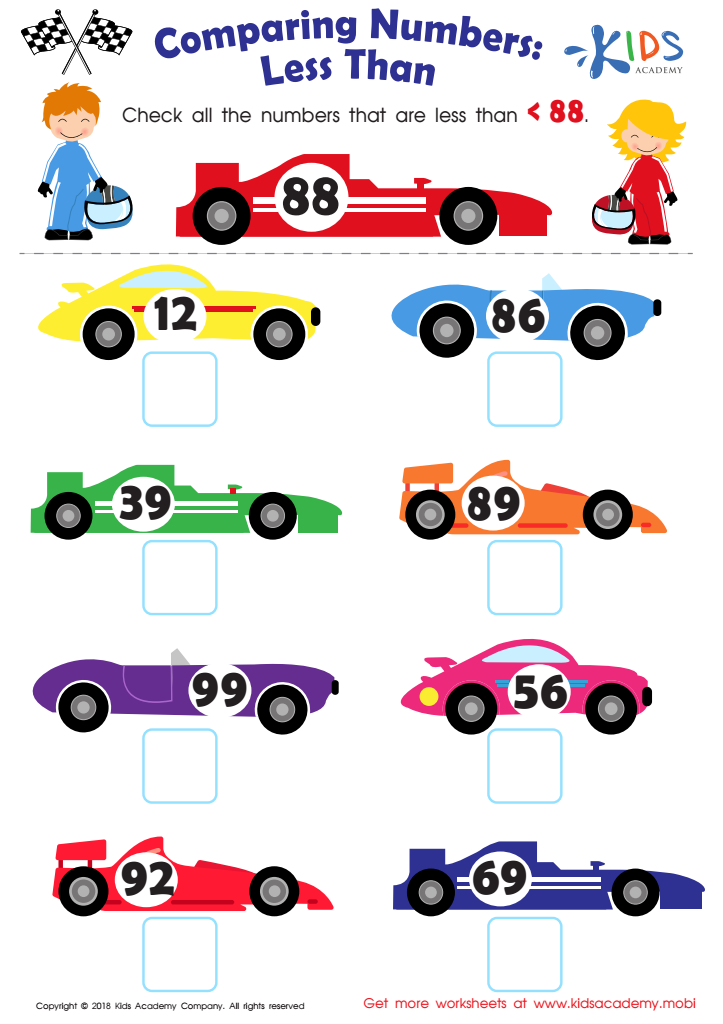

Less Than Worksheet
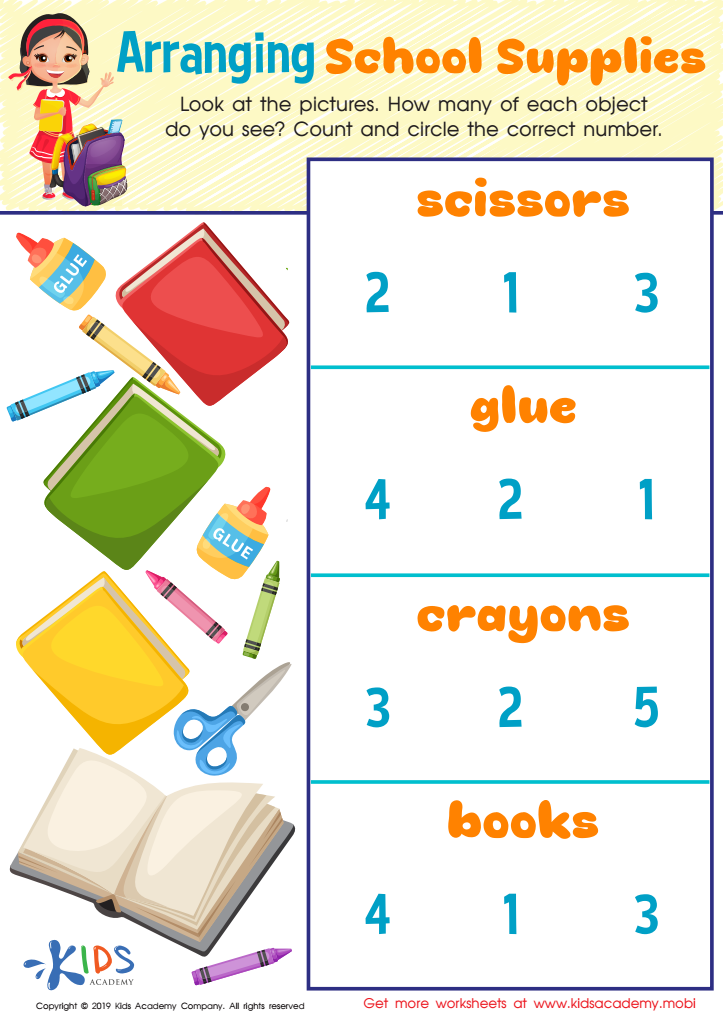

Arranging School Supplies Worksheet
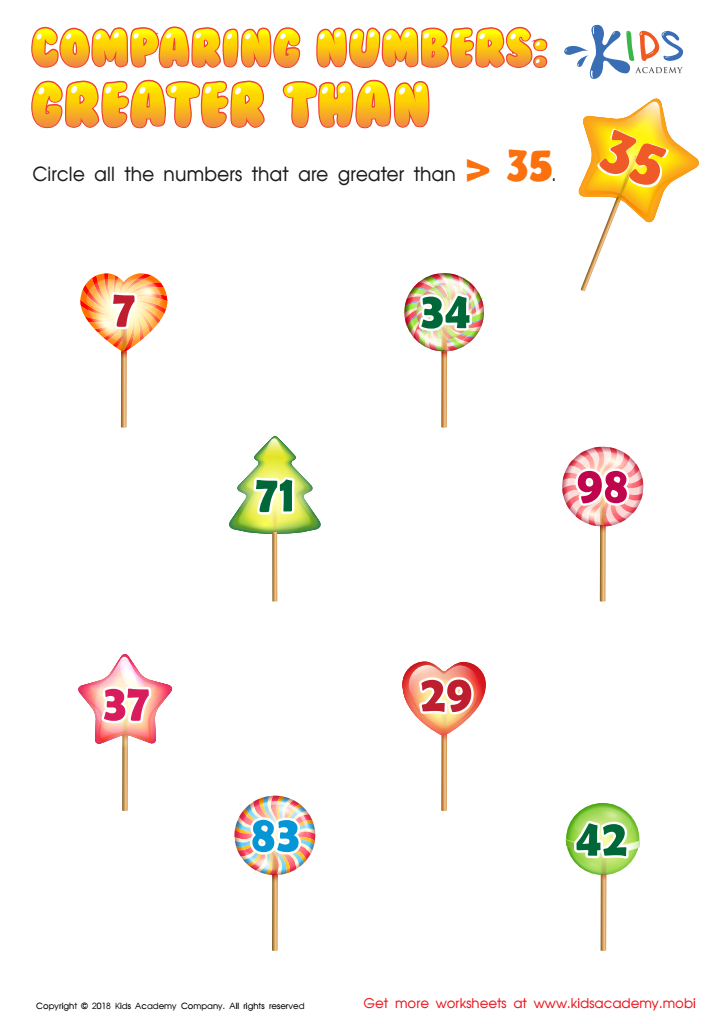

Greater Than Worksheet
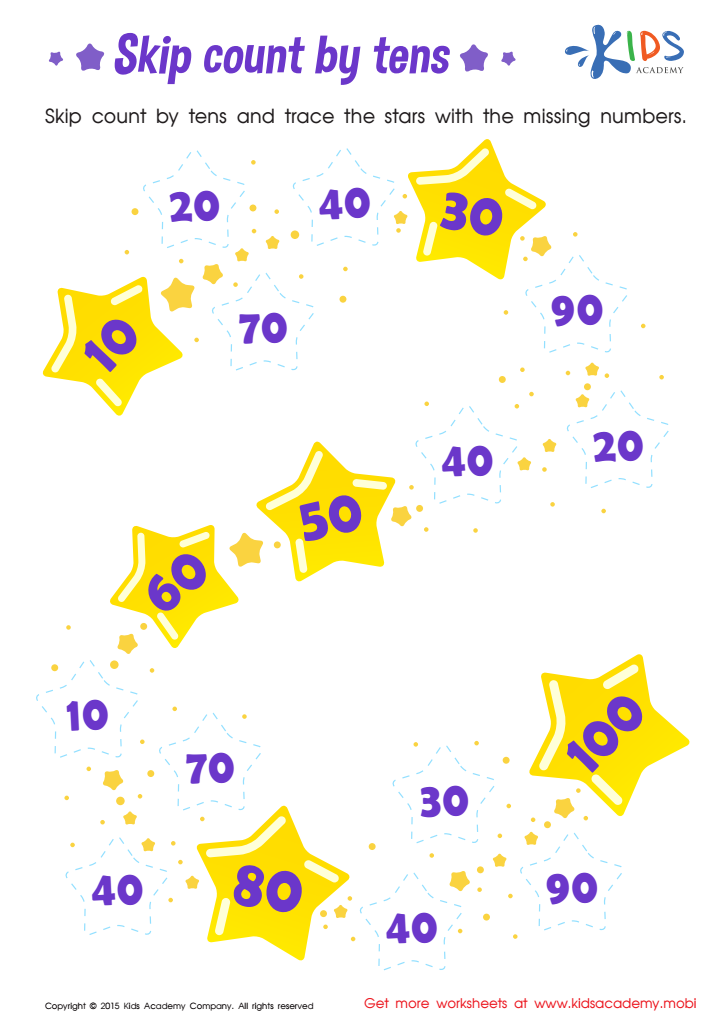

Learn dozens: Skip Count by Tens Printable
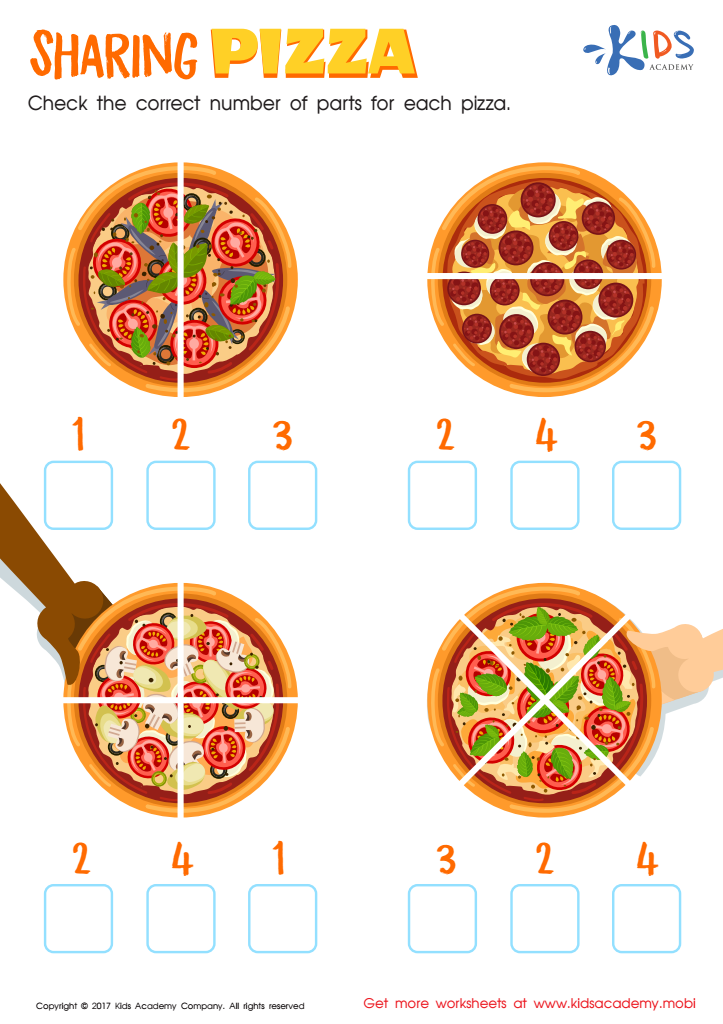

Sharing Pizza Worksheet
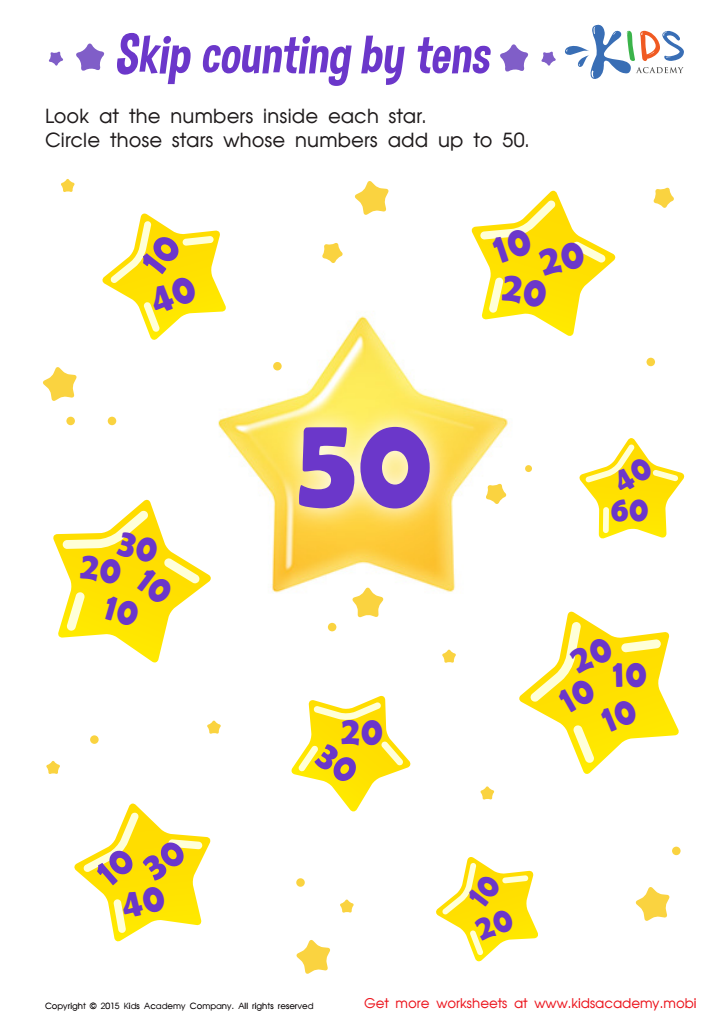

Learn Dozens: Skip Counting by Tens Printable
Improving counting skills in young children, ages 3-6, is crucial for their cognitive development and lays a foundation for future mathematical understanding. During this developmental stage, children are highly receptive to learning and honing these skills fosters critical thinking. Counting is among the first mathematical concepts that children encounter, shaping their ability to recognize patterns, engage in problem-solving, and understand numerical relationships.
Moreover, counting skills promote language development and enhance memory. By learning to count, children not only acquire number vocabulary but also develop an understanding of the sequence of numbers, which is essential when advancing to more complex math concepts like addition and subtraction.
Incorporating counting into daily routines can also create positive learning experiences, where parents and teachers can seamlessly integrate these skills through play and everyday interactions. This encourages a love for learning and instills confidence in young learners. As foundational skills in numeracy develop, children are better prepared for academic success in later years. Ultimately, supporting counting skills in early childhood sets the stage for a lifetime of mathematical competence and curiosity, making it imperative for both parents and educators to prioritize this vital aspect of early education.

 Assign to My Students
Assign to My Students







%20(1).jpg)








